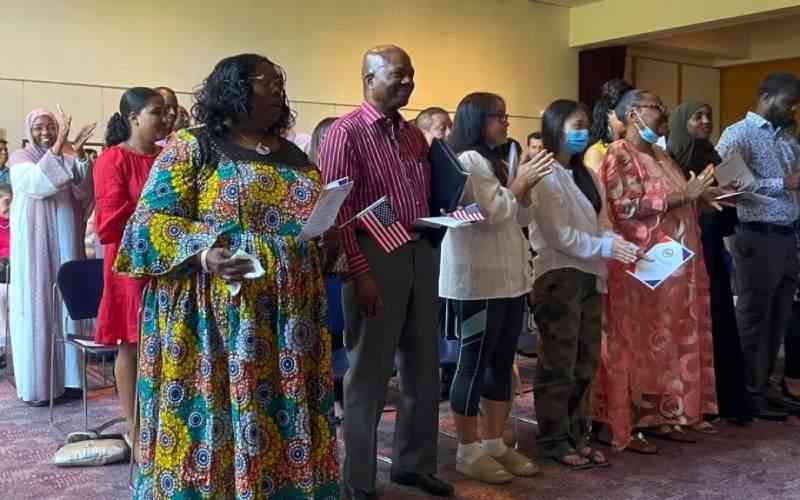×
The Standard e-Paper
Smart Minds Choose Us

Dozens of people become U.S. citizens during a naturalization ceremony in St. Paul, Minnesota, June 21, 2023. [File, VOA]
The U.S. citizenship test is being updated, and some immigrants and advocates worry the changes will hurt test-takers with lower levels of English proficiency.